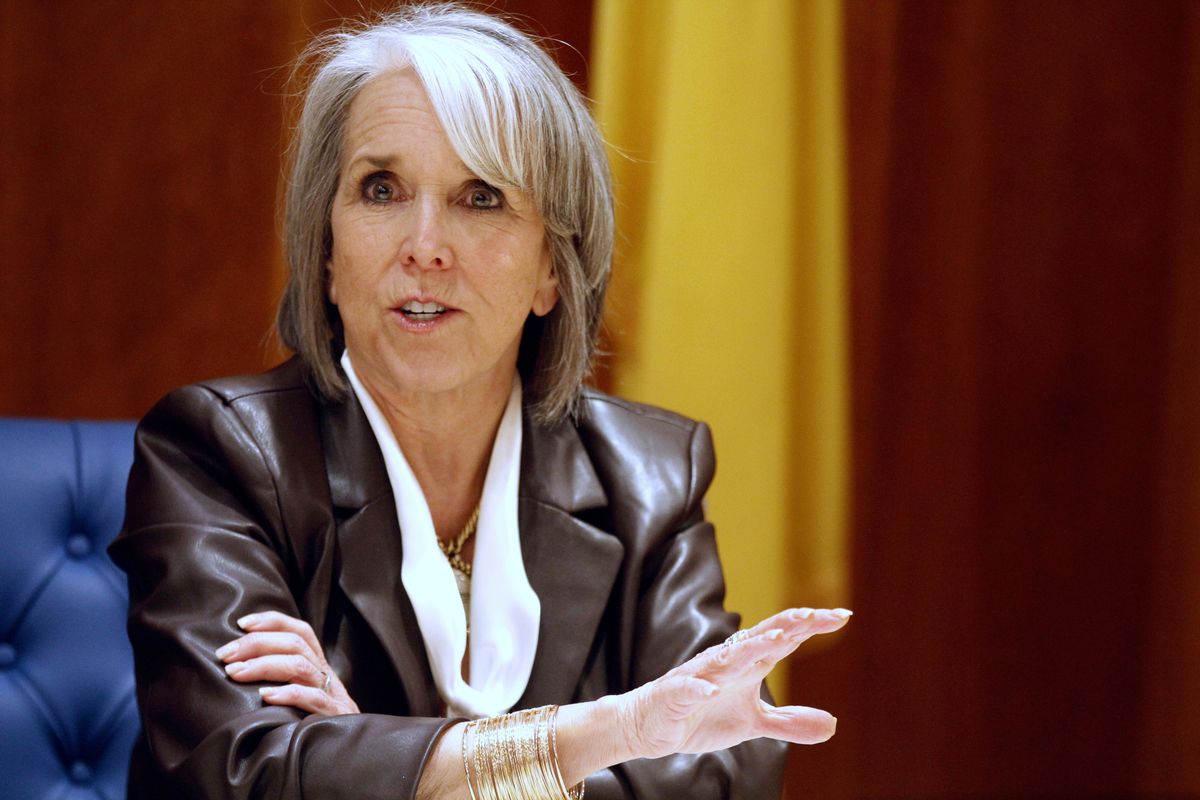**New Mexico Lawmakers Act Swiftly to Support Food Assistance and Rural Health Care Amid Federal Cuts**
SANTA FE, N.M. (AP) — New Mexico lawmakers moved quickly Thursday during a special legislative session to bolster funding for food assistance and rural health care services. This comes in response to federal spending cuts on Medicaid and nutrition programs under President Donald Trump’s administration.
The Democratic-led Legislature sent a bill to Gov. Michelle Lujan Grisham that allocates over $16 million to sustain food assistance through the Supplemental Nutrition Assistance Program (SNAP) and to strengthen food banks. This action addresses federal changes that end SNAP eligibility for many noncitizens and alter benefit calculations for others.
“We need to act to make sure that New Mexicans don’t go hungry with SNAP changes at the federal level,” said Democratic state Sen. George Muñoz of Gallup.
An additional $50 million is designated to support medical services at rural health clinics and hospitals, which often rely heavily on Medicaid funding.
### Opposition from Republicans
Republicans in the legislative minority unanimously opposed the spending provisions. They argued that significant federal changes to Medicaid are still a few years away and emphasized the need for New Mexico to focus on reducing errors in benefit distribution instead.
However, both Democrats and some Republican legislators voted in favor of backfilling subsidies for health insurance on New Mexico’s Affordable Health Care Exchange if federal credits were allowed to expire. These federal subsidies have been a major sticking point in the ongoing budget standoff in Washington, which led to a government shutdown Wednesday.
### Temporary Measures Amid Long-Term Cuts
Many federal health care changes under Trump’s major bill will not take effect until 2027 or beyond. Democratic lawmakers in New Mexico acknowledged that their recent bills serve only as temporary measures.
“Some of the most significant federal cuts are delayed a few years, and these are deeply significant,” said state Rep. Nathan Small of Las Cruces, the lead sponsor of the spending bill. “I want to make sure that we’re all thinking of, not hundreds of millions, but billions of dollars of reduced Medicaid support to our state.”
Gov. Michelle Lujan Grisham, a Democrat, supports key provisions of the bills and holds the authority to veto any spending measures.
Trump’s bill has prompted urgent responses in several Democratic-led states, including New Mexico, while Republican-led states have so far taken a different approach.
### Funding for Food Assistance
New Mexico lawmakers approved a swift infusion of state funds to support food assistance for elderly SNAP recipients. Nearly one in four residents in New Mexico receive food assistance through SNAP, making it a critical resource to combat hunger.
Under the bill, food banks across the state will receive an $8 million increase in direct state support. Additionally, $2 million is allocated to replenishing food pantries in universities and public schools.
The federal bill expands work and reporting requirements for SNAP participants, terminates eligibility for many noncitizens, and changes how benefits are calculated.
### Rural Health Care Concerns
Trump’s bill sets aside $50 billion over five years for rural hospitals, providers, and clinics but these funds may not fully offset significant cuts.
The situation is particularly pressing in New Mexico, where approximately 38% of residents rely on Medicaid. Both Republican and Democratic lawmakers warn of a looming rural health care crisis as the state struggles to retain medical professionals and keep clinics and hospitals operational.
State Sen. Pat Woods, a Republican from New Mexico’s sparsely populated eastern plains, co-sponsored changes to rural health care grants aimed at sustaining existing services at rural clinics and hospitals.
“We’re trying to figure out a way to fund and keep some of these clinics open. What’s going to happen in the future? Who the hell knows,” Woods told a panel of lawmakers. “What I worry about is keeping these clinics and hospitals open until the dust settles.”
The bill passed the House with a vote of 64-3 and was sent to the governor for consideration.
### Insurance Subsidies and Public Broadcasting Funding
Legislators also approved setting aside $17 million to ensure that health insurance subsidies on New Mexico’s Affordable Care Act exchange do not lapse. This effort extends insurance subsidies to middle-income residents whose earnings equal or exceed 400% of the federal poverty level — roughly $128,000 annually for a family of four.
Democratic state Sen. Carrie Hamblen of Las Cruces emphasized that these subsidies are crucial to prevent a “perfect storm” of unaffordability. She warned that rising insurance rates could reduce participation in the exchange and exacerbate coverage gaps.
State health officials have indicated that tens of thousands of residents could drop their insurance coverage if exchange rates increase in 2026.
Separately, the legislature approved $6 million in state funding for public broadcasting stations, including $430,000 for five tribal stations severely impacted by Congress and President Trump’s defunding of the Corporation for Public Broadcasting.
Approved federal grants for these stations for the current federal budget year were rescinded under a bill signed by President Trump in July.
—
*This legislative session underscores New Mexico’s proactive approach to safeguarding vulnerable populations amid federal funding uncertainties.*
https://mymotherlode.com/news/national/10024690/new-mexico-legislature-approves-bills-to-prop-up-rural-health-care-underwrite-food-assistance.html
